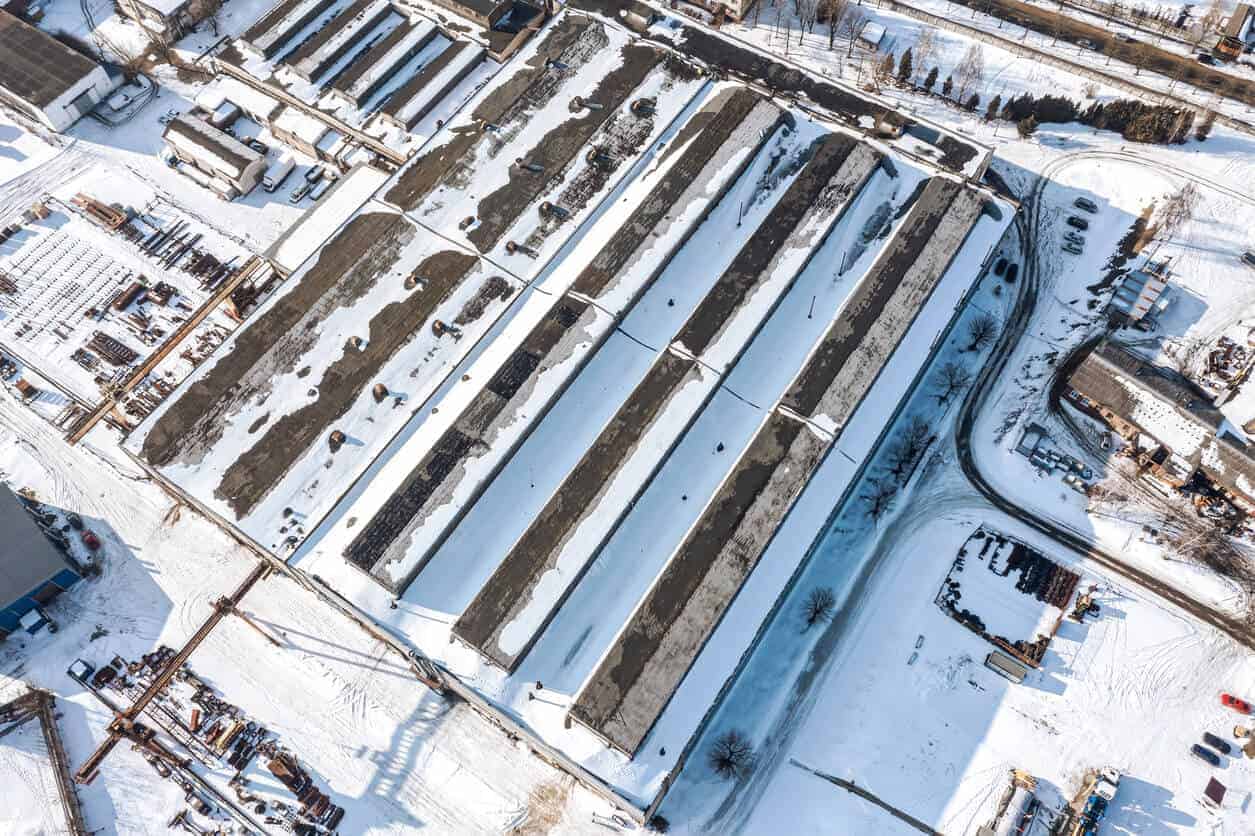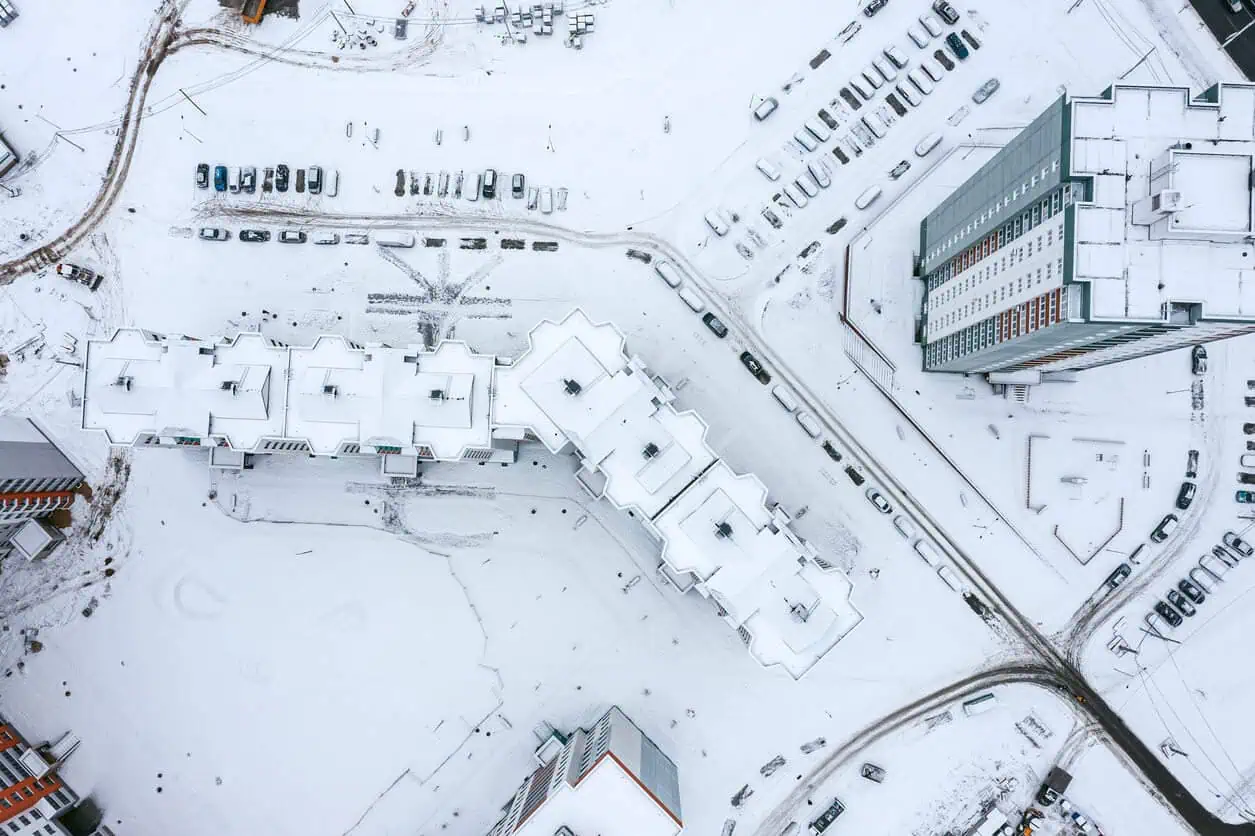You already know how a properly insulated roof can reduce home energy costs. But you may not understand how roof insulation benefits low-slope roofs. Here are the benefits of a properly insulated roof on a commercial building.
How Roof Insulation Benefits a Commercial Building
It’s intuitive that warm insulation is critical for steep roofs with significant attic space. But just as there are many benefits of attic insulation, there are benefits for installing roof insulation on buildings with flat roofs.
Here are some reasons why you need to have a conversation about insulation with your commercial roofing contractor.
Proper roof insulation makes a commercial roof more durable.
Your commercial roof membrane will serve as a first line of defense against any impact. However, roof insulation also helps with durability – and can help protect against harsh weather, falling branches, and foot traffic. For greater durability, consider choosing a high-density cover board to place between the insulation and the membrane.
A properly insulated roof offers greater thermal resistance.
Of course, installing insulation offers improved energy efficiency and cost savings. The more you spend on energy consumption, the more you need to focus on finding the proper insulation for your building. Ask about the R-value and U-value of your commercial roofing system:
- The R-value measures how well a material resists the flow of heat.
- The higher the R-value – the more effective the material.
- The U value is called the “heat transfer coefficient.”
- The lower the U-value, the more effective the material.
Polyisocyanurate insulation, also called “polyiso” or “iso,” is a rigid foam insulation type with a high R-value per inch. It is compatible with most decks and roofing membranes, making it an excellent choice for most projects.
It’s worth noting that it’s more than just poor roof insulation raising your energy bills. Insulation is one part of your commercial roof system.
Some insulation materials are more fire-resistant than others.
Besides insulating your roof against heat loss, some insulation materials can prevent or reduce the spread of fire – and limit fire damage. If your building is in a fire-prone area, ensure the insulation has a UL Class A fire-resistance or FM Class 1 rating.
Besides making a commercial roof more durable and fire resistant, insulation can also add slope to your roof, which may improve drainage. In addition, some insulations can reduce noise transmission. Check out this video of the Lionsgate Studio that installed a new roof that keeps out the weather and the sound of nearby trains.
Other Key Considerations When Selecting Quality Insulation
It’s also worth noting that there are many different types of roof insulation, ranging from liquid-applied foam to insulating concrete. Ask your roofing contractor for the best commercial insulation for your project based on the roof membrane, building use, and climate.
Even though this article focuses on the importance of an energy-efficient insulation system – proper ventilation, roof design, and installation are critical. You must protect the insulation from moisture. Insulation becomes less effective if water reaches it. In addition, water-damaged roof insulation can also cause wind uplift.
There’s a lot to consider when choosing a commercial roofing system. Roofing insulation is just one component. In addition to choosing quality roofing materials (including good roof insulation), the entire system must be installed appropriately.
For a commercial roofing partner you can trust, contact Nations Roof. We will answer any questions you have about commercial roof insulation and advise you on how to prolong the life of your roof.
The Importance of Having a Properly Insulated Roof
- The choice of insulation makes a difference in your roof’s durability, fire resistance, and energy efficiency.
- Insulation is one part of the commercial roof system.
- No matter the type of roof system you choose, proper installation and maintenance are critical factors in a long-lasting roof.




